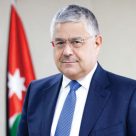
Minister of Finance
Omar Malhas
Finance / Jordan
“Annual growth has been reduced by 1% since the Syrian Refugee Crisis began”
Jordan is confronted by a wave of economic woes today, including a chronic budget deficit and high employment, which are all exacerbated by a long-running refugee crisis. Though no easy riddle to crack, a cure may lie in improving fiscal stability, Minister of Finance Omar Malhas tells us, which, in turn, could bring in more FDI and the rising GDP growth Jordan needs. Malhas offers a frank view of how the refugee crisis is impacting the economy, and how the international community can do more to ensure regional stability.
What challenges are presented in addressing Jordan’s macroeconomic problems?
Jordan has four major problems to tackle: high debt, a chronic budget deficit, lower-than-anticipated economic growth, and high unemployment rates. This procedure is extremely complicated, given that the solutions are contradictory at some points. Hypothetically speaking, if we lower the deficit, meaning that we borrow less, we will start containing debt. At the same time, in order to reduce deficit, we may need to increase our internal revenue. If we increase our internal revenue, we will have to increase taxation, as well. By increasing taxes, we will probably hurt economic growth. Given that our economic growth would not go well, our attempt to tackle unemployment would be sub-optimal, as well.
How, then, are you directly tackling these economic issues?
First of all, we are trying to achieve fiscal stability given that it is the backbone of economic stability. Otherwise, no one will invest if the economic situation is shaky; they all need stability. If we have investments, then our economy will start growing at a better pace. Automatically, we will be tackling unemployment. For a country like Jordan, the economy needs to grow at double the rate of the size of its natural population growth, which is 3.2%; this is without taking into account the waves of refugees coming our way. Today, we are at one-third of the GDP growth of what we should have. This is the reason why it is so difficult for us to tackle unemployment without tackling the growth issue first.
What impact has the Syrian Refugee Crisis had on the economy?
According to an IMF study conducted in early 2018, our annual economic growth has been reduced by about 1% since the Syrian Refugee Crisis began. Moreover, Syrian refugees are a reality; they are here, on Jordanian soil, and they will not be leaving anytime soon. I would suggest that the international community becomes more forthcoming in helping us, stepping up to the gravity of the current circumstances.
How has international financing been lacking for Jordan?
I think that concessional financing will come back and haunt us. It is very unfair for Jordan to borrow in order to spend more on the refugees. Our children and grandchildren will practically end up paying the bill because their grandfathers were too generous. We do not need concessional financing to spend on the refugees; we need more grants. Today, grants are arriving at a slower pace than we anticipated. When the IMF program was designed three years ago, the major component of this program was grants. We were expecting through 2017 until 2020 to get around $2 billion per year in grants, and at the moment we are not even getting 50% of that. The whole climate has changed and there is donor fatigue. Most grants traditionally come from the US.
How is the ministry approaching PPPs to assist offset budget deficit issues?
We need to allow more public-private partnerships (PPP) across all sectors, especially agriculture, tourism, transportation and healthcare. At the moment, we have 12 PPP projects that are identified and ready for interested investors. The most recent project completed is a $50-million new slaughterhouse in the city of Amman. Another important private and public partnership to note is the Disi Water Conveyance Project, which now transports water from the southern part of Jordan all the way to Amman. We have also done multiple quasi-PPP projects. For example, if an investor wants to build a hospital, he can maintain it, and the Ministry of Health leases it. After the lease runs up, if the project is fully paid, ownership of the hospital will pass onto the Ministry. Another example of this model is our new Customs Center, which is a part of our plan to improve trade routes, and it will be completed in 2019.
What do you believe the Jordan brand can become?
If we try to copy what others do, without really identifying industries and services we are good at, we are not going to succeed. Jordan is open for business, and I personally would highlight its seriousness, safety and security, open economy, free capital mobility, and easy ownership; this is our formula for businesses, and it is rather well formed.
